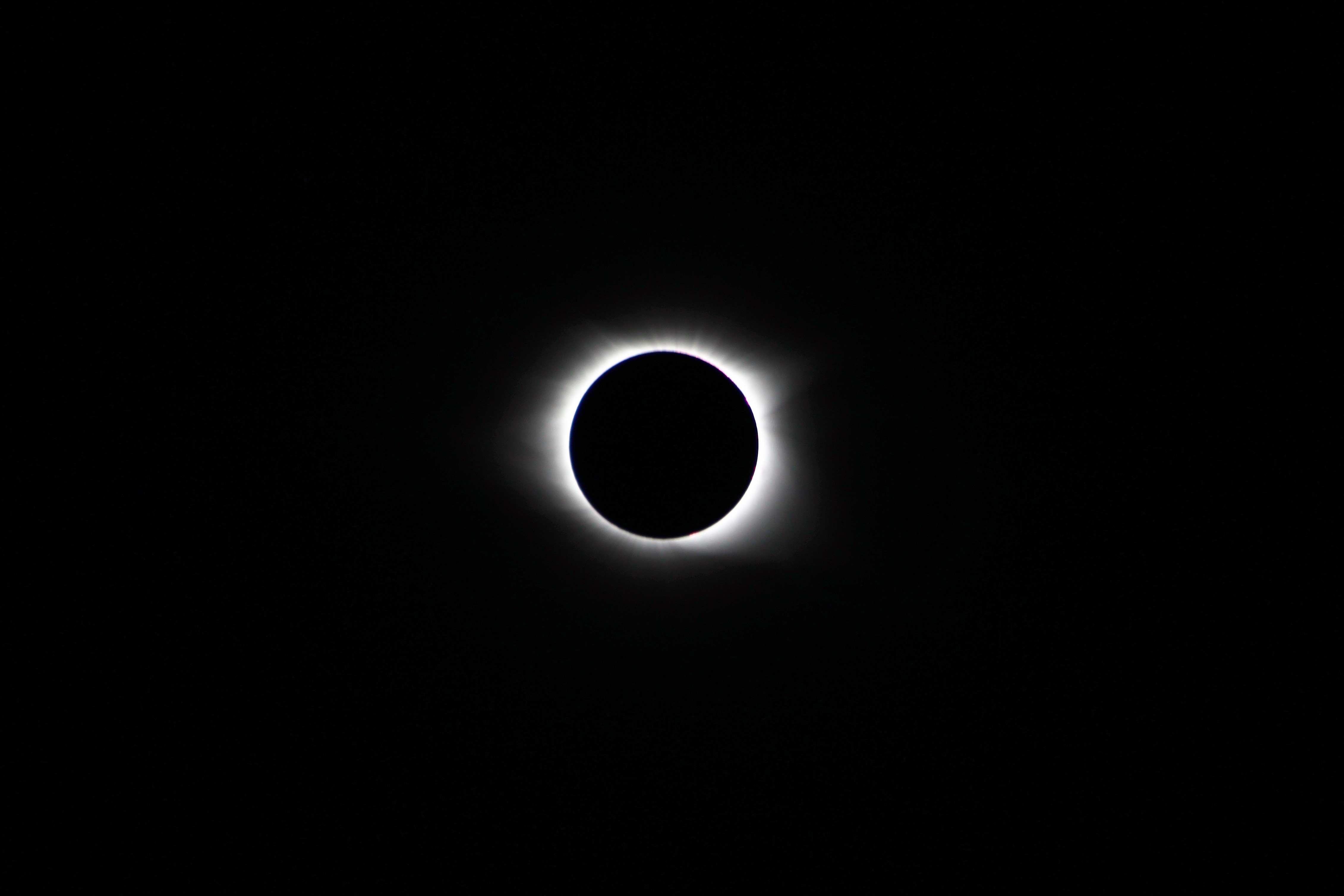Monday the 21st at approximately 2:38pm, the solar eclipse revealed itself to Greenville, South Carolina. This phenomena came and went at different times across the US. Although the eclipse was experienced by most across the country, some cities, like Greenville, were lucky enough to witness a total solar eclipse, something that will not happen again for a very (very, very, very) long time.
Here’s a glimpse at the eclipse from differing perspectives throughout the great states of America.
Greenville, SC:
Furman expected thousands of visitors on its campus and was by no means let down. One Furman senior, Maggie Donnellan, stated there were “5,000 people in the stadium alone,” an extraordinary number. All parts of campus were packed with students, families, and Greenville locals all soaking in the total solar sun.
Lexington, SC:
Another Furman senior, Erica Blake, was not on campus to witness the massive crowds, but had a great Eclipse experience nonetheless. Blake was on a boat in Lake Murray in Lexington, SC. According to Blake, the lake was packed with boats filled with excited families awaiting the event. As the sun began to rotate slowly behind the moon, the weather dropped from 90F to an almost chilly 70F. The sun crept towards totality and the lake became still. Boat engines turned off, birds flew above in packs, crickets and other nighttime insects began to chirp. The sun hid behind the moon and emerged like a spotlight two and a half minutes later, and boats revved their engines and sped across the lake in the newly discovered light of day.
Blake said, “It was the coolest thing I’ve ever experienced.”
Metairie, LA
In a suburb in Louisiana fifteen minutes from downtown New Orleans, the Brignac family gathered at their home. There were three toddlers, two adults and one Paw Paw who recently hit the ripe age of 90. The Brignacs sat on the back porch as the bright sky slowly became dark. The sky, however, never dropped to that inky black color South Carolinians were fortunate enough to witness. Although not a total eclipse, it was an amazing event for a family to experience together.
Lavonia, Michigan
A recent University of Michigan graduate, Lauren Plawecki, stood outside in the parking lot at her corporate job. There were twenty people, a couple of solar shades and a few makeshift glasses too. Plawecki noted that one co-worker used raisin bran cereal box as glasses to shield his eyes. Michigan did not witness a total eclipse, but even a ten-minute break from work is enough reason to celebrate.
Atlanta, GA
Home on summer break, Carnegie Mellon student Autumn Hill walked to a local store in Atlanta two hours prior to the eclipse. Unfortunately for her (and many more around the country, one imagines), the store was completely sold out of glasses. Without eye protection, Hill took the safe (yet less satisfactory) route of watching the eclipse on TV and Twitter. Take it from Hill -- next time there’s an eclipse, make note to buy a pair of solar shades weeks in advance.
NYC, NY
A student at NYU, Anabel Masaschi, was on the subway during the eclipse. She was slightly disappointed with the partial view, saying “We could barely tell it was happening… But it was pretty funny to see people with their eclipse glasses on the subway.” Masaschi shared that the city was packed, solar shades were sold out, and there were city-hosted watching parties throughout NYC.
Louisville, KY
Maureen, owner of a small floral business, texted her crew via WhatsApp and offered everyone the day off to enjoy the eclipse experience. By noon, the atmosphere began to change and Maureen went down to her farm. She sat the top of the hill and watched as everything became still. She said, “The sky seemed like it was glowing.” Like most, she was in awe of the experience; the total eclipse reminded her that “there is so much more to earth than us.”
Washington, D.C.
D.C. only received a partial eclipse, but the experience was an event to be remembered. Nadine was out walking around my neighborhood and stopped by the elementary school “to observe how the kiddos were experiences this phenomenon.” The children, she noted, “went old school with the cereal boxes and aluminum foil, a genius science project that hopefully inspires a future scientist!”
Nadine said that although D.C. was not in the 70 mile radius of the lucky folks who experienced a total eclipse, it was still an amazing opportunity to view. She watched the eclipse “through NASA eclipse-approved glasses and attempted to peek sans glasses but alas, no joy... It was indistinguishable to the naked eye.”
If you missed out on this eclipse -- if you were not in one of the 14 states who witness totality or if you were in one of the 14 states but simply lost track of time watching soap operas or bathing your big, stinky puppy -- you only have to wait 6 more years. The next eclipse happens in America in 2024. Make sure to mark it in your calendar.

